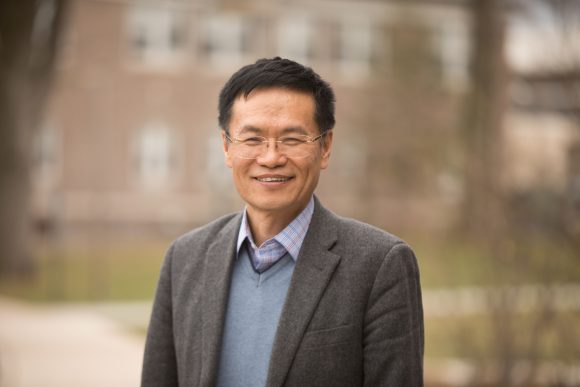
Rutgers SEBS faculty Liping Zhao.
For Liping Zhao, world renowned researcher and the School’s new Douglas and Linda Eveleigh and Dennis and Linda Fenton Endowed Chair in Applied Microbiology, the study of the human microbiome brings to mind the Indian parable of the blind men and the elephant: in the story, each blind man touches and studies a different part of the elephant but, because they do not communicate with one another, they come to be in complete disagreement about the animal as a whole. This, he says, represents the historical limitations of biomedical research, in which each area has been largely independent of the others. The study of the microbiome, he believes, has the capability to break the mold.
“By definition, the study of the human microbiome needs to be collaborative,” he says. “The blind men in the parable didn’t talk to each other. It is my goal to help create the conceptual framework so that we can all work on the same elephant, so to speak, and communicate about the totality of the system.”
Zhao’s part of the elephant is the gut microbiome, and his research has centered on how diet and gut microbiota influence chronic diseases like obesity and type 2 diabetes. “The beauty of microbiome research on human microbiota is that it’s basic research, but it’s also translational and translatable,” he says. “We are understanding why gut bacteria can make people obese and develop diabetes, but we can also change the diets of these people to restore their gut to a healthy structure.” Indeed, translational applications of his research can run the gamut from nutritional guidelines to developing better or new food to prevent disease onset.
“When you work on the microbiome, you must bring all kinds of expertise on board,” he says. “That’s why this area of study is so powerful, and has the capability to transform the whole landscape of biomedical research.”
Editor’s Note: this article originally appear in Explorations Spring 2017.

